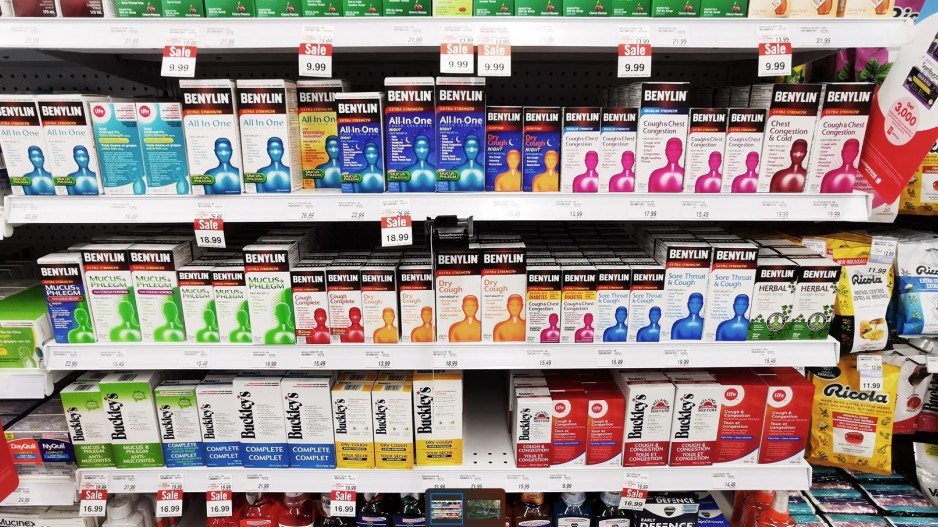B.C. resident Hardeep Dhaliwal is suing drugmakers and retailers for unjustly enriching themselves, and for misrepresenting how effective products with phenylephrine are at decongesting nasal passages.
His action follows news earlier this month that a U.S. Food and Drug Administration advisory panel concluded that taking phenylephrine orally does not relieve nasal congestion because it metabolizes too quickly in the stomach to deliver benefits, unlike nasal sprays, which are effective.
Dhaliwal’s lawsuit names drug companies: Johnson & Johnson Inc., Proctor & Gamble Inc., GlaxoSmithKline Consumer Healthcare ULC and RB Health (Canada) Inc.
It also names retailers: Shoppers Drug Mart Inc., Wal-Mart Canada Corp., Amazon.com.ca Inc., London Drugs Ltd. and Loblaw Co. Ltd. / Les Compagnies Loblaw Limitee.
Phenylephrine is a common ingredient in household medications such as Benylin, DayQuil, Tylenol, NeoCitran, Robitussin and Mucinex.
“The nasal decongestant phenylephrine metabolizes in the stomach before it reaches the nasal cavity,” Dhaliwal claims in his lawsuit.
“In manufacturing and/or selling oral cold and flu medicines containing phenylephrine as an active ingredient, the defendants have breached the Competition Act, RSC 1985.”
He added that selling the medications also breached Canada’s Business Practices and Consumer Protection Act.
Dhaliwal said in his lawsuit that, for approximately 20 years, he routinely bought for personal use products such as Benylin Extra Strength Cold and Sinus Night, Vicks DayQuil Cold & Flu Multi-Symptom Relief Liquicaps and NeoCitran Cold & Sore Throat Night at Shoppers Drug Mart during the winter and spring.
He filed his Sept. 22 lawsuit through class-action lawyers at Slater Vecchio LLP on his own behalf and on behalf of all Canadian residents outside Quebec who purchased for personal use any of a range of cold medicines that contain phenylephrine between Dec. 31, 1989, and Sept. 22 to use.
Slater Vechhio LLP has filed a separate lawsuit in Quebec.
Dhaliwal and his lawyers seek damages and costs and that BC Supreme Court issue an order to certify the court action under the Class Proceedings Act.
Consumer-related potential class-action lawsuits can take more than two years get certified, or to have a court say that the cases meet all necessary criteria.
If the court certifies this case, all people who bought the cold medicines in the referenced time period are automatically included as being potential beneficiaries in a potential settlement.
Specific details, such as whether beneficiaries must show receipts for purchases, would be included in the settlement. Drug retailers may have customer loyalty programs that keep records of consumer purchases and that may be one way that shoppers could prove that they bought the products.
None of the claims in Dhaliwal’s lawsuit has been proven in court.





